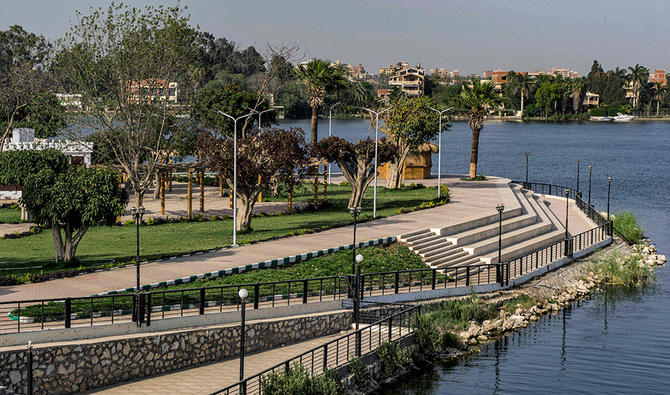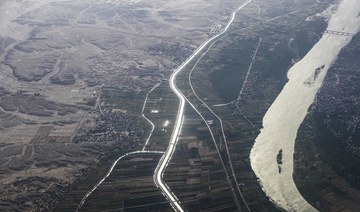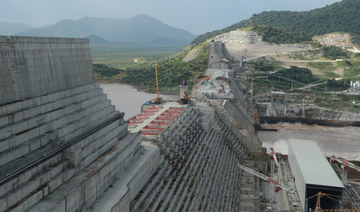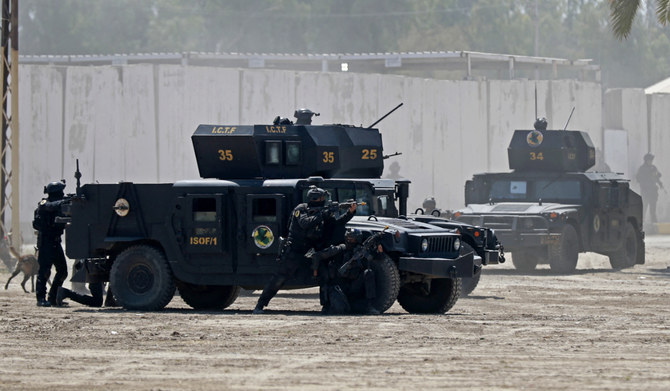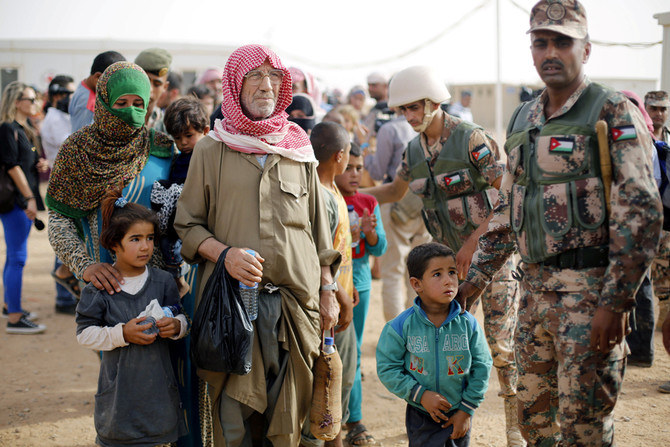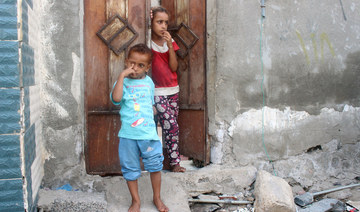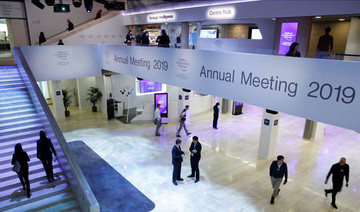CAIRO: Motaz Zahran, Egypt’s ambassador to the US, has sought Washington’s support for the mediation process under the leadership of the African Union president, in order to reach a binding agreement on the rules for filling and operating the Grand Ethiopian Renaissance Dam (GERD) as soon as possible.
He said it will protect security and stability in the region and safeguard the US strategic interests with the three countries involved: Egypt, Sudan and Ethiopia.
Ethiopia started building the dam, which is 1.8 kilometers in length, in 2011. However, Egypt fears the GERD will threaten its supplies of water from the River Nile. Sudan, meanwhile, is concerned about the dam’s safety and water flows through its own dams and water stations.
During a seminar at the American National War College, Zahran said Egypt will not be complacent about its water security, warning that unilateral management of the process of filling and operating the dam could result in the exacerbation of water poverty in Egypt.
He said it could magnify the negative effects of climate change in a manner that cannot be contained, causing massive environmental, social and economic damage.
Zahran also said the issue of Nile water in both Egypt and Sudan is too dangerous to be left to Ethiopia, due to its significant consequences for the people of the region.
Both Cairo and Khartoum stress the need to reach a binding and comprehensive deal that guarantees the rights and interests of the three countries.
Zahran said it was the successive Ethiopian administrations that deliberately pursued policies based on fueling Ethiopian public opinion regarding issues of Nile water and its internal trade. This came in an attempt to contain the internal tensions in Ethiopia, instead of seeking to reach a compromise that secures the common interest of the people of the region.
The ambassador said there was a solution on the negotiating table in Washington last year that would allow generating electricity as efficiently as possible from the dam, as well as guaranteeing Ethiopia’s right to establish future projects under the umbrella of international law. But the Ethiopian side was absent from the meeting to sign the agreement, given its preference for unilateral action without being bound by international law, and without any prior coordination or consultation regarding dam projects.
“This is the systematic policy pursued by Ethiopia with its various neighbors, which has caused Lake Turkana in Kenya to be on the verge of extinction, as declared by the United Nations Educational, Scientific and Cultural Organization,” he said. “It also inflicts severe damage on the inhabitants of the Juba and Shabelle rivers in Somalia.”
Zahran stressed that Egypt cannot allow the repetition of such unilateral Ethiopian practices in the Nile Basin as well, and that this is an existential and fateful issue for the Egyptian people.
Negotiations between Egypt, Sudan and Ethiopia over the GERD have so far failed to reach a binding agreement.
Talks were held in early April in the capital of the Democratic Republic of Congo, Kinshasa, with representatives from Cairo and Khartoum voicing their fears over the potential negative effects of the dam on the Nile and its dependents downstream.



